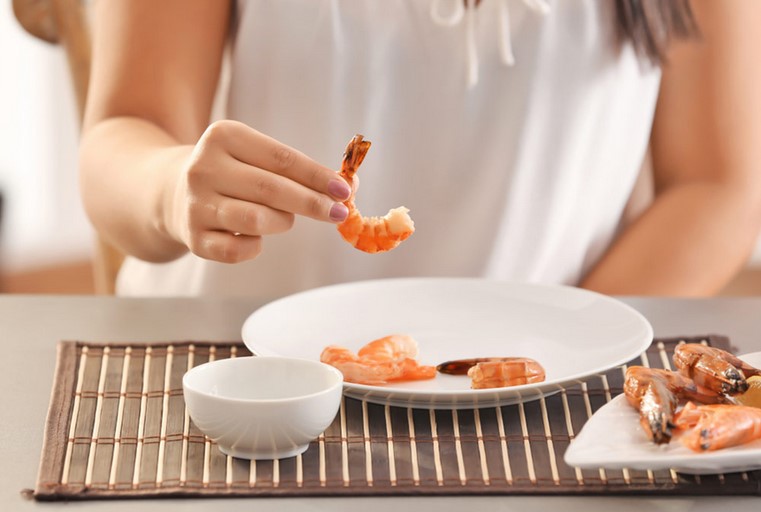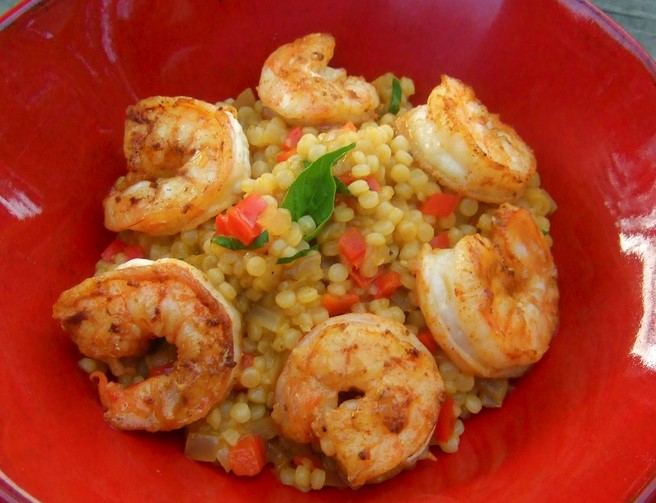Shrimp is a safe food for pregnant women. It is rich in Omega- 3 fatty acids and has a low mercury concentration. In addition, it contains low fat and helps in lowering cholesterol. It is also good for fetal development. Omega-3 fatty acids in shrimp help the fetal nervous system develop properly and boost immunity. They also help with eye vision.
Is shrimp safe to eat during pregnancy? If you’ve eaten shrimp and worried about the health of your fetus, you are not alone. If you had been pregnant recently and decided to track the quality of foods you’ve consumed and where it could have ended up affecting your unborn child, we can certainly help.
Cooked shrimp is safe to eat while pregnant
While it’s best to avoid raw shrimp while pregnant, cooked shrimp is completely safe to consume. Raw shrimp is not only unsanitary but also could contain parasites, worms, and listeria, which can cause infections and even miscarriages. Even worse, some uncooked shrimp may contain antibiotics, which can have a devastating impact on the baby’s development. In addition to being an excellent source of protein, shrimp also contains omega-3 fatty acids, which are beneficial to the baby’s health.
Shrimp is considered a safe seafood for pregnant women because of the low mercury content and high protein content. A pregnant woman should eat eight to 12 ounces of seafood a week, and preferably two or three meals. While eating out, cook your shrimp carefully. If you’re eating sushi, make sure it’s cooked. Vegetarian sushi can be prepared by adding cooked egg or avocado.

Wild-caught shrimp is low in mercury
While pregnant women should avoid eating wild- caught shrimp, it is safe for them to eat shrimp occasionally in moderation. Shrimp is low in mercury and is a good source of protein. It is also low in fat and mercury, making it a good option for pregnant women. Cooked shrimp is safe for pregnant women, but it does contain higher levels of cholesterol than other seafood. Nevertheless, shrimp is a good source of iron, selenium, and vitamin B12.
The average mercury level in shrimp is 0.009 parts per million (ppm), which is considered very low by scientists. A ten -fold higher mercury concentration would be considered a health risk. While the EPA considers shrimp a good choice for pregnant women, the mercury level in shrimp varies depending on the source and raising methods. For this reason, it is best to check the mercury levels of your local seafood products before consuming them.
Cheaper shrimps are treated with sodium bisulfite or sodium tripolyphosphate
The shrimp industry uses sodium bisulfite or sodium tripollyphosphate to add weight and bulk. However, the FDA doesn’t consider the additives to be harmful. The process also increases the sodium content in shrimp by as much as seven to 10 percent. To avoid buying shrimp that contains these additives, make sure to buy only domestic wild-caught shrimp.
These chemicals are added post -harvest to shrimp to protect the quality of the product. Sodium bisulfite blocks the enzyme that causes melanosis in shrimp. Melanosis causes shrimp to darken once exposed to oxygen. Sodium tripolyphosphate also prevents shrimp from rotting.

Avoiding farm-raised shrimps
Avoiding farm-raised shrimps during pregnancy is extremely important to the health of you and your unborn child. These shrimp are raised under unsanitary conditions and can cause serious infections and illnesses. Moreover, farm- raised shrimps can be imported and are likely to contain harmful contaminants. As a result, pregnant women should steer clear of farm-raised shrimps and eat only wild shrimps. In addition, it is best not to eat undercooked or raw shrimp. Always consult with your doctor before consuming shrimp during pregnancy.
Pregnant women should limit their seafood intake to two servings per week. Consuming a limited amount of seafood can help keep toxins and mercury levels in check. Besides, shrimp is a good source of protein for the growing fetus. Some women also take fish oil supplements to avoid exposure to mercury.
Shrimp is safe to eat during pregnancy. However, pregnant women are advised to avoid eating fish and shellfish due to the high levels of mercury that they contain.


